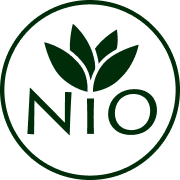In addition to talking about the taste of genmaicha tea, it is also important to discuss the genmaicha nutrition facts.
Many tea drinkers see genmaicha's health benefits as just as important as the flavor, and in this article, we are going to be tackling one of our favorite teas, genmaicha or toasted rice tea.
As you will see, genmaicha nutrition is considered to be on a similar level to other types of green teas, with a few distinct attributes that come from the addition of the toasted rice.
Let’s dive in and get to the bottom of genmaicha nutrition! 🍵
What are the basics of Genmaicha Nutrition?
Before we dive deep into genmaicha nutrition facts, let’s first cover the basics.
Genmaicha is a unique type of Japanese tea that is made by combining green tea leaves with toasted brown rice.
This unique combination creates a distinct flavor profile that is both nutty and grassy, and it gives the tea a lower caffeine content compared to traditional green tea.
Genmaicha tea is not only delicious but it can also offer a whole list of health benefits due to its high antioxidant and nutrient content.
Breaking down genmaicha nutrition
When trying to understand genmaicha nutrition, it makes sense to break it down into its constituent parts, green tea leaves and toasted rice.
The green tea leaves are rich in antioxidants, catechins, and polyphenols, while the toasted brown rice is a good source of carbohydrates and dietary fiber. When combined, these two ingredients create a tea that not only tastes great but also provides a variety of health benefits.
When preparing genmaicha tea, you simply add the leaves to a kyusu teapot and pour in hot water to extract the nutrients. Because genmaicha is infused into water, different temperatures and brewing times can extract different nutrients. That’s why if you want to get the most out of genmaicha nutrition, you have to follow the brewing parameters.
Breaking Down the Genmaicha Tea Nutrition Facts?
Now that we’re getting into the details of genmaicha tea nutrition facts, it’s important to discuss the main nutrients of genmaicha tea. These nutrients are extracted by the hot water and they can all have beneficial effects on the body.
Antioxidants
Green tea leaves, which are an important ingredient in Genmaicha, are rich in antioxidants, specifically catechins. These antioxidants help to neutralize harmful free radicals in the body, which can contribute to the development of cancer and other chronic diseases.
Caffeine
Genmaicha has a lower caffeine content compared to traditional green tea. Caffeine can help to boost energy levels, improve mental focus, and reduce fatigue.
Vitamin B
Toasted brown rice, which is another important ingredient in Genmaicha, is a good source of Vitamin B. Vitamin B is essential for maintaining healthy skin, hair, and eyes, and also for proper brain function.
Minerals
Genmaicha is a good source of minerals such as potassium, calcium, and iron. Potassium is important for maintaining healthy blood pressure, calcium is essential for strong bones, and iron is necessary for the production of red blood cells.
Fiber
Toasted brown rice is also rich in dietary fiber, which is important for maintaining a healthy digestive system and preventing constipation. The amount you get in a cup of genmaicha tea is pretty small, but every little bit counts!
Overall, the combination of green tea leaves and toasted brown rice in Genmaicha tea creates a beverage that is not only delicious but also nutritious. The antioxidants, minerals, vitamins, and fiber found in Genmaicha can help to improve overall health and well-being, and may even reduce the risk of certain chronic diseases.
Carbs
So does genmaicha have carb? The short answer is yes. Genmaicha tea does contain carbohydrates, although the amount of carbs in a cup of Genmaicha tea is typically low.
What about the genmaicha calories?
When you take a look at the genmaicha calories, you may be surprised to find that a cup of the toasted rice tea only has about 2 calories. The reason for this is that a majority of a cup of tea is water, and a very small percentage is actually tea leaf material.
Genmaicha calories may be slightly higher compared to other types of tea because of the additional starch from the toasted rice, but it is still nothing compared to most drinks. This shouldn’t be much of a factor when it comes to most diets, but if you are on a fast, it might make sense to check with your doctor before drinking a cup of genmaicha tea. So, does genmaicha break a fast? You might be surprised about the answer!
Genmaicha Nutrition Facts Compared to other Teas
You may have noticed up until now, we have been talking about green tea benefits in general, but what aspects of genmaicha nutrition facts are unique? Let’s talk a bit about how genmaicha compares to other types of teas in a broad range of different categories.
By the way, if you want to learn how the genmaicha calories compare to a standard green tea, you can find that article here 👉 What You Need to Know about Green Tea Calories
Caffeine Content
Genmaicha has a lower caffeine content compared to green tea and black tea. This makes it a great option for those who are sensitive to caffeine or for those who want to enjoy the benefits of tea without the jitters.
Antioxidants
Genmaicha contains similar levels of antioxidants as green tea, but the specific types of antioxidants found in Genmaicha are unique to this tea. Green tea is known for its high levels of catechins and EGCG, whereas Genmaicha also contains antioxidants from toasted brown rice.
Vitamin B
Genmaicha has a higher Vitamin B content than green tea and black tea due to the presence of toasted brown rice, which is a good source of Vitamin B. The
Fiber
Genmaicha has a higher fiber content than green tea and black tea due to the presence of toasted brown rice, which is a good source of dietary fiber.
To sum it all up, Genmaicha nutrition is similar to the nutrition of other types of green teas with a few exceptions. Depending on what you’re looking for, genmaicha can be a great way to enjoy the health benefits of tea without the jitters that come from the high caffeine.
Final Thoughts on Genmaicha Nutrition
The health benefits of Genmaicha nutrition are numerous and include improved heart health, reduced risk of certain cancers, and better digestion. Drinking Genmaicha on a regular basis can contribute to overall health and well-being.
We encourage you to try some Genmaicha tea and incorporate it into your daily routine. You can experiment with different steeping times and temperatures to find the perfect cup for you. You can also serve it with meals or as a standalone drink, and even try it iced on hot summer days. Although genmaicha is famous for its warm and toasty flavors, it also works great as a cold brew or an iced tea.
We hope that this article has helped you to understand the unique flavor profile and nutritional benefits of Genmaicha. If you found this helpful, we’d really appreciate it if you could share it with a friend or family member who may also enjoy it. Thank you so much for taking the time to read, and if you have anything to add, please do so in the comments.




